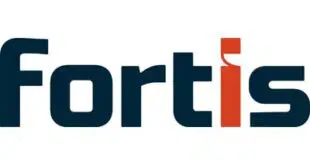More than 10 years after its founding, prepaid card reload network and distributor Green Dot Corp. is considering an initial public offering to raise up to $150 million for its next growth phase. The registration statement Monrovia, Calif.-based Green Dot filed last week for the proposed stock offering is a window into one major company’s success in the booming prepaid card business?and also points out some of its perils.
Green Dot hasn’t said when it will price the offering and its shares begin trading on the New York Stock Exchange. A spokesperson says founder and chief executive officer Steven W. Streit would be unavailable for comment because of the “quiet period” mandated by the Securities and Exchange Commission in conjunction with the filing. The registration statement says Green Dot will use money from the stock offering for general corporate purposes, including working capital, capital expenditures, and possible acquisitions.
Green Dot’s growth strategy involves more than just selling stock. The company has also plans to buy Provo, Utah-based Bonneville Bancorp, a small, single-bank holding company that owns Bonneville Bank, according to a Feb. 22 notice in the Federal Register. The acquisition would make Green Dot a bank holding company. Green Dot currently uses Columbus Bank & Trust of Columbus, Ga., and General Electric Co.’s GE Money Bank to issue the vast majority of its prepaid cards, although Sumter, S.C.-based National Bank of South Carolina also issues some.
Owning a bank will have a number of advantages, the filing says. “We believe this acquisition will increase the efficiency with which we introduce and manage potential new products and services, reduce the risk that we would be negatively impacted by changes in the business practices of the banks that issue our cards, reduce the sponsorship and service fees and other expenses that we pay to third parties, and allow us to serve our customers better and more efficiently through a more vertically integrated platform,” the filing says.
Fast growth is the story told by Green Dot’s filing as the company and its competitors have capitalized on the booming demand for general-purpose, or network-branded, prepaid cards. For the year ended July 31, 2009, customers activated 3.1 million of Green Dot’s general-purpose reloadable cards, up from 428,737 in fiscal 2005 for a compound annual growth rate (CAGR) of 64.1%. Customers performed 14.1 million cash transfers in fiscal 2009 and carried 2.06 million active cards representing CAGRs of 58% and 63.3%, respectively, since 2005. Users loaded $4.7 billion onto Green Dot cards in fiscal 2009 for a CAGR of 83.5% since 2005.
Green Dot recorded operating revenues of $234.8 million in fiscal 2009 and net income of $37.2 million, up 39.7% and 114%, respectively, from the prior year. For the quarter ended Oct. 31, 2009, the company posted operating revenues of $66.3 million, up 26% from $52.6 million in the year-earlier period, and net income of $10.4 million, an increase of 78.6% from $5.83 million.
Starting out as Next Estate Communications in 1999 and changing its name to Green Dot in 2005, the company bills itself as the nation’s largest prepaid card reload network, with about 50,000 retail locations. Major retail partners include Wal-Mart Stores Inc., Walgreen Co., CVS Caremark Corp., Rite Aid Corp., Kroger Co., RadioShack Corp., Sears Holding Co.’s K-Mart chain, Meijer Inc. and 7-Eleven Inc. More than 100 third-party programs use the Green Dot network to facilitate reloading.
Besides the breadth of its network, Green Dot says one competitive advantage it has is its proprietary technology platform, Green PlaNET, which enables secure real-time transactions. And PayPal Inc. recently became a Green Dot network acceptance member, enabling PayPal customers to use Green Dot’s flagship MoneyPak product to fund new or existing PayPal accounts.
But the competition in Green Dot’s markets is fierce. The filing says Green Dot’s rivals include prepaid card program managers such as First Data Corp., Netspend Corp., AccountNow Inc., PreCash Inc. and UniRush, LLC, and other reload network providers including Visa Inc., MasterCard Inc., The Western Union Co. and MoneyGram International Inc. Green Dot also competes with prepaid card distributors such as InComm and Safeway Inc.’s Blackhawk Network.
Besides the competition, Green Dot is heavily dependent on keeping in the good graces of its largest customers, especially Wal-Mart. Green Dot contracted with Wal-Mart and GE Money to operate a prepaid card program in Wal-Mart stores in 2006. By October 2009, the product was available in more than 3,600, or 97%, of Wal-Mart’s U.S. stores. Operating revenues from sales at Wal-Mart and Green Dot’s other three largest retail distributors represented 64%, 9%, 8% and 6%, respectively, of the company’s total operating revenues for the three months ended Oct. 31, 2009. “The loss of operating revenues from any of these retail distributors would adversely affect our business,” the filing says.




